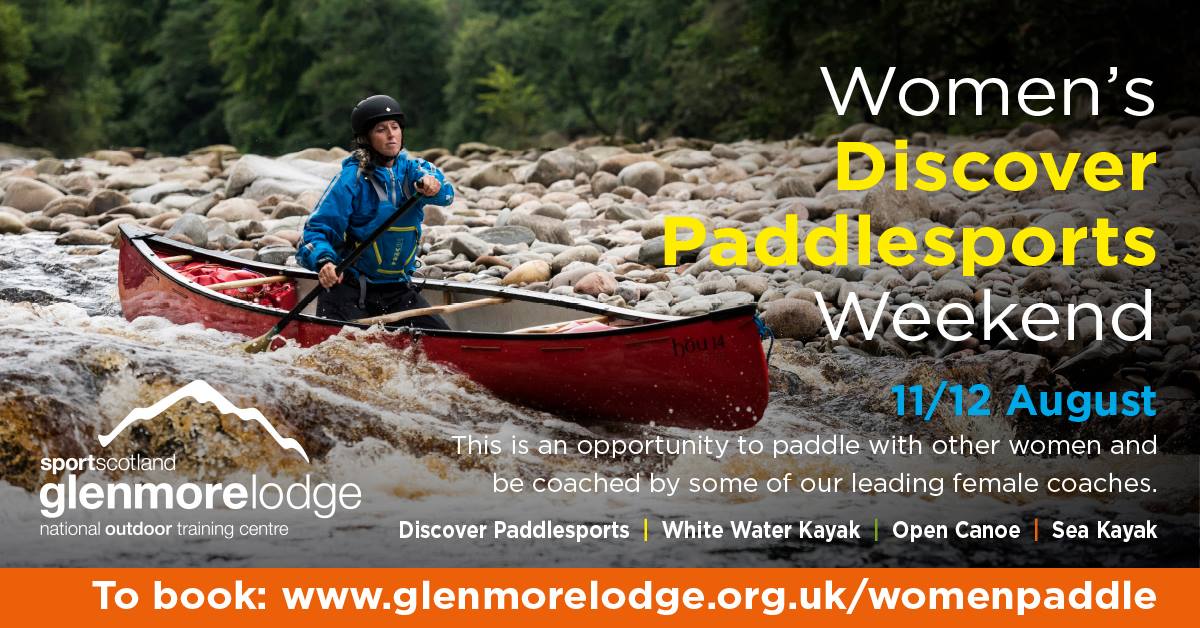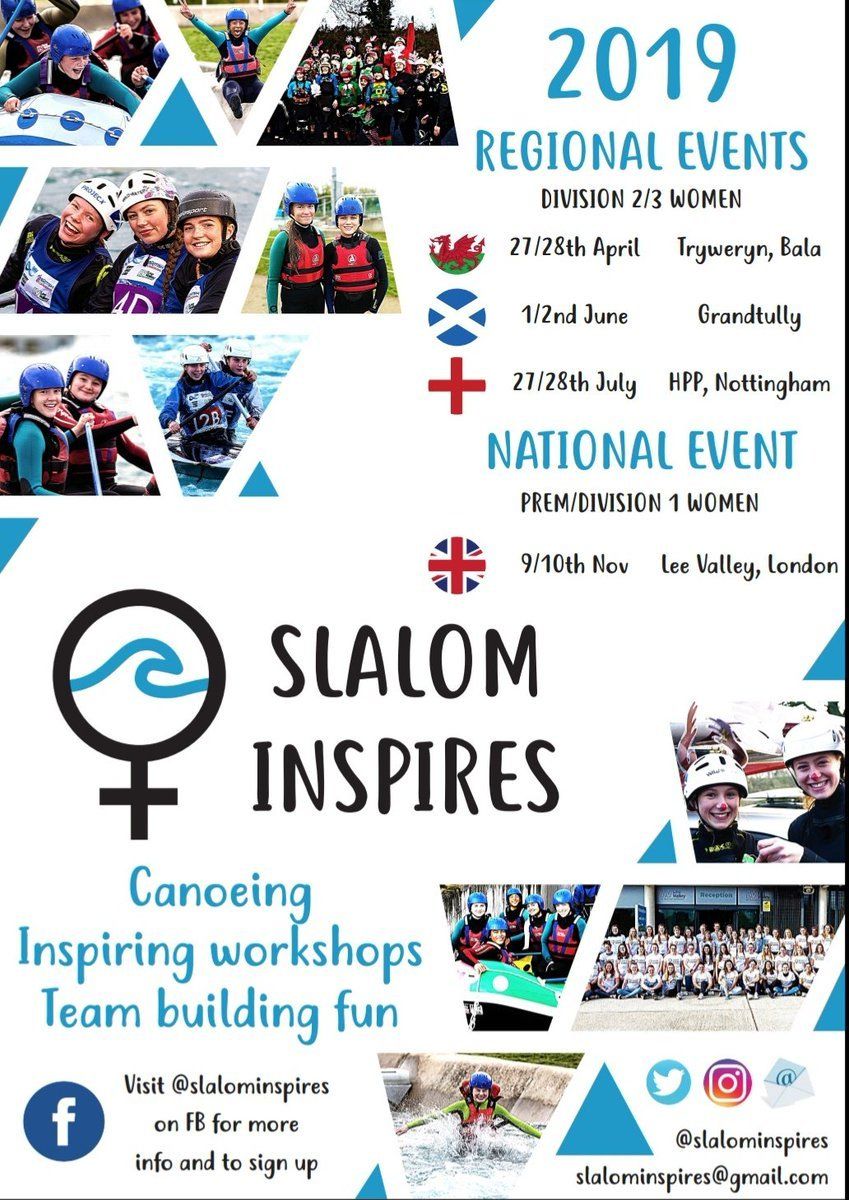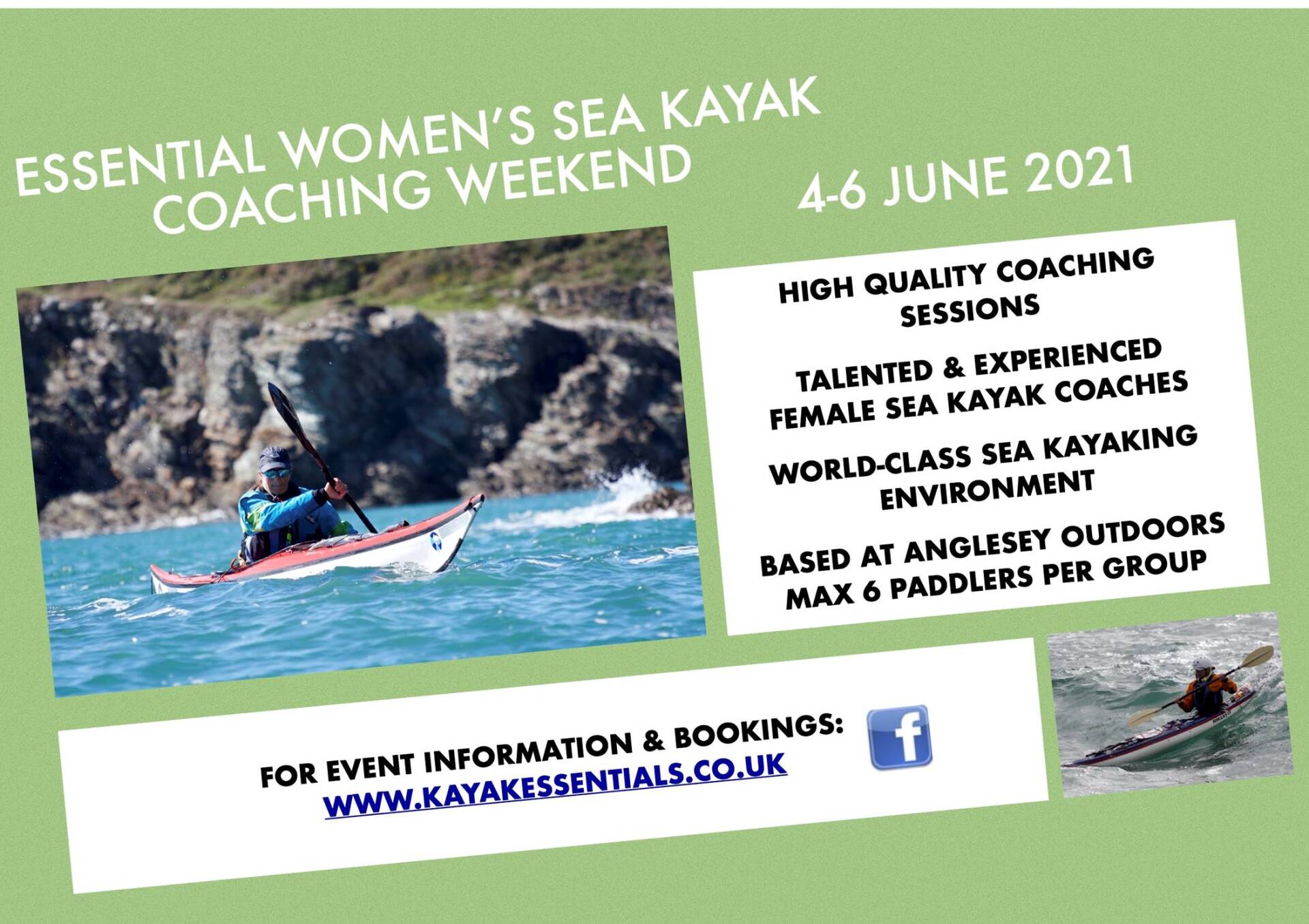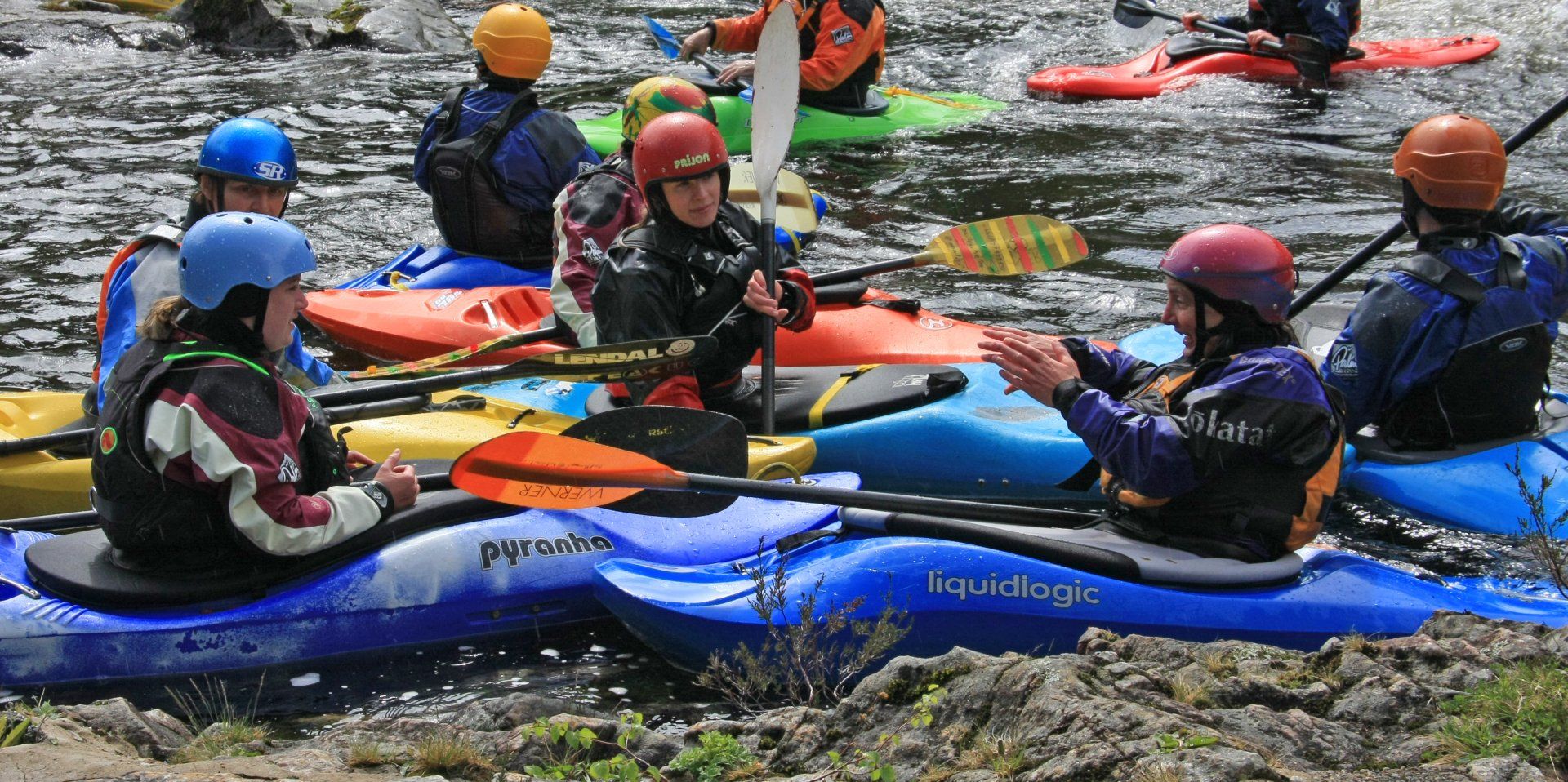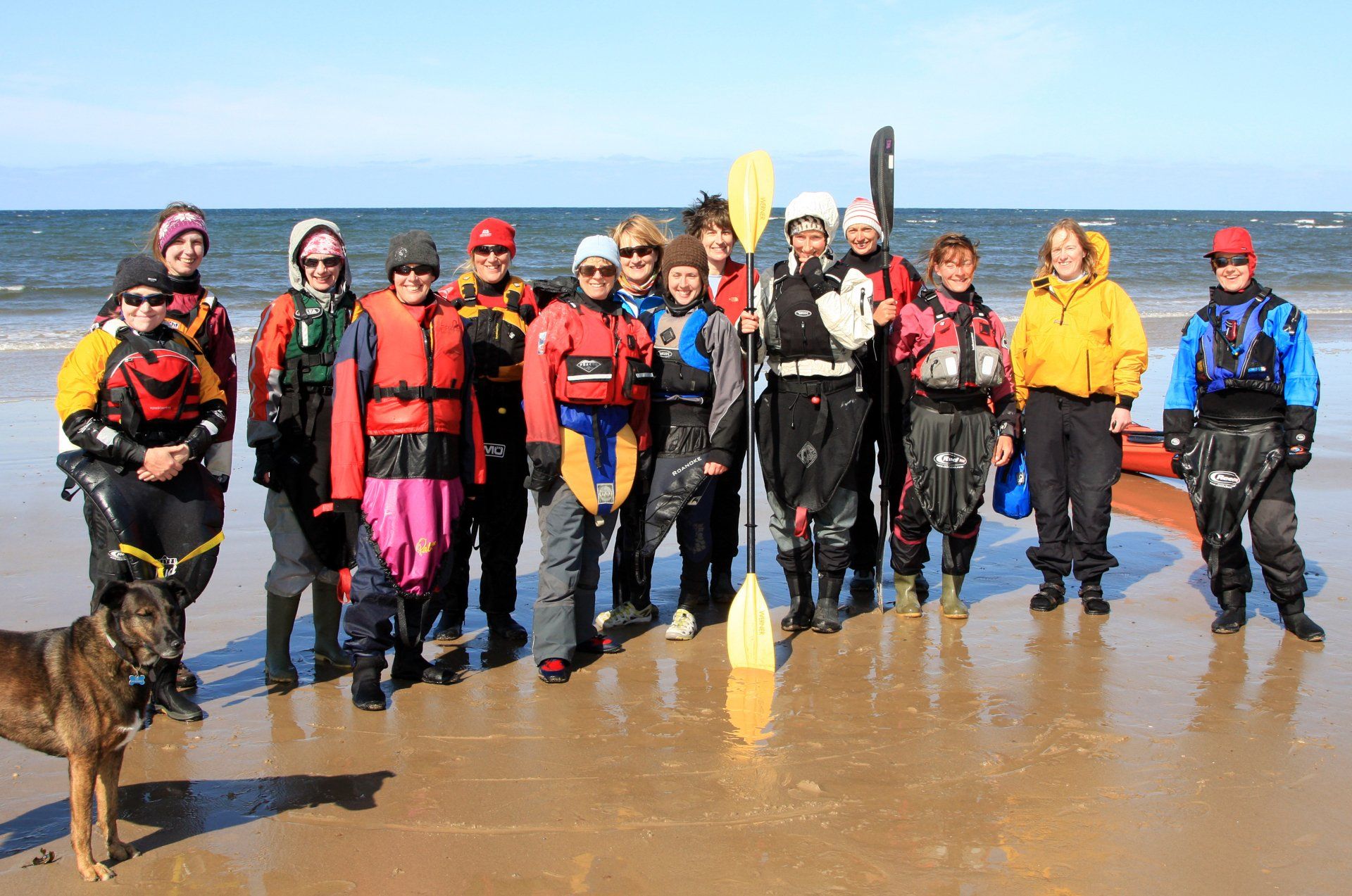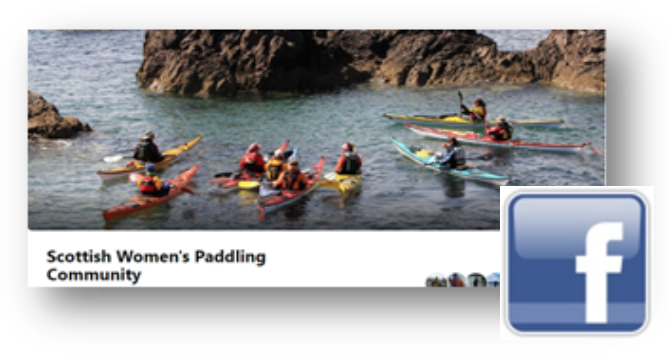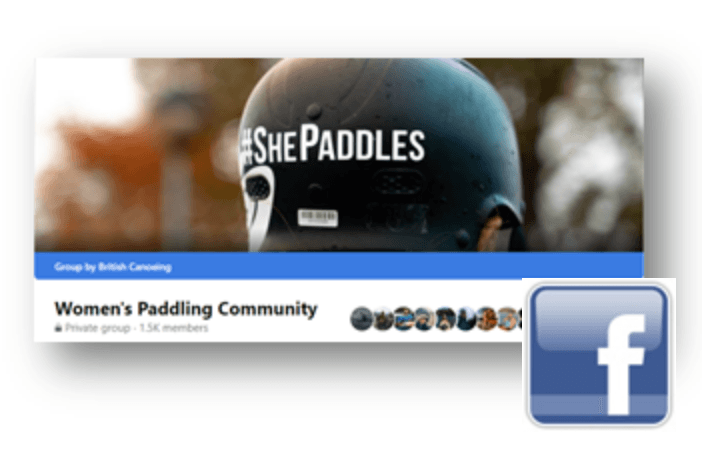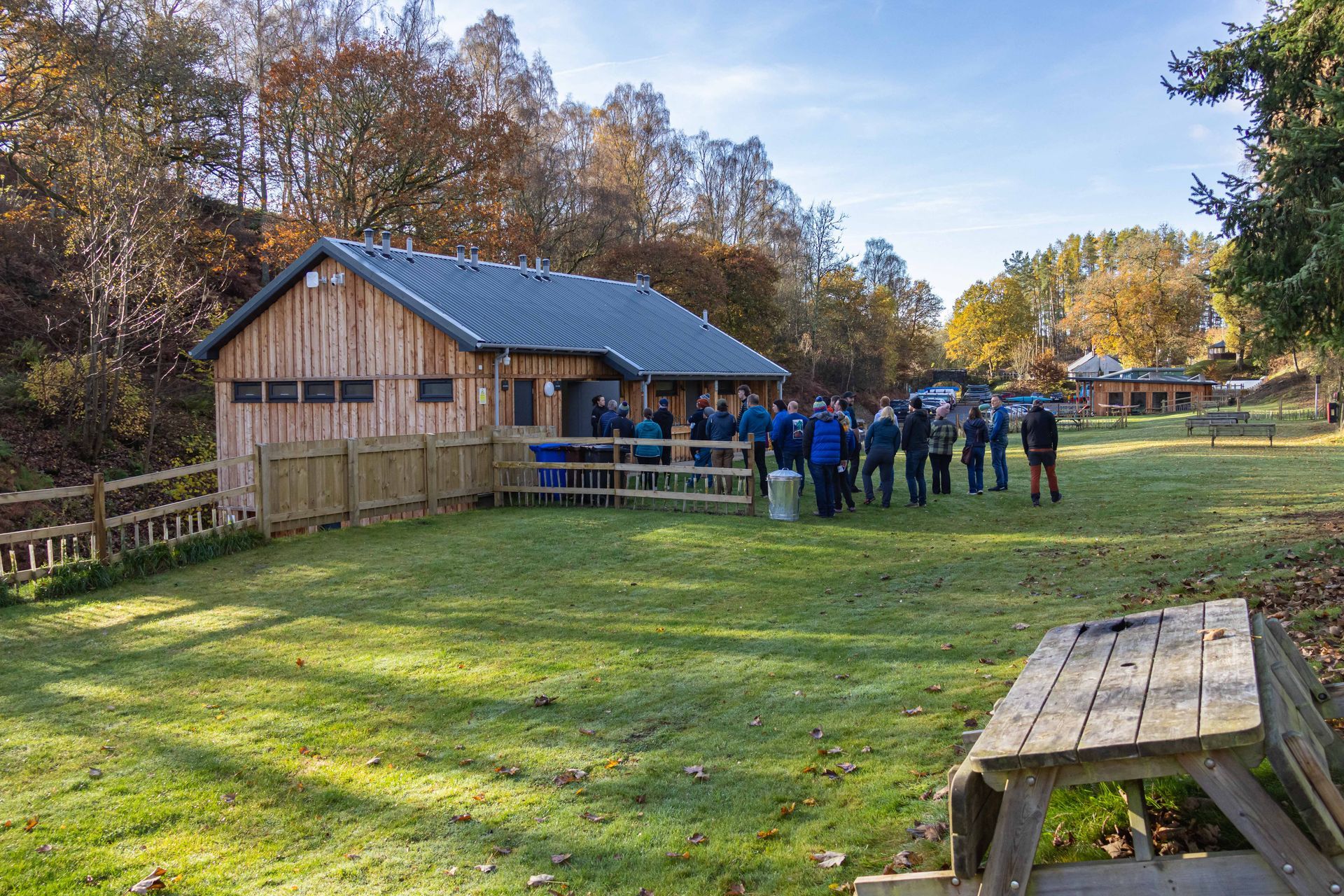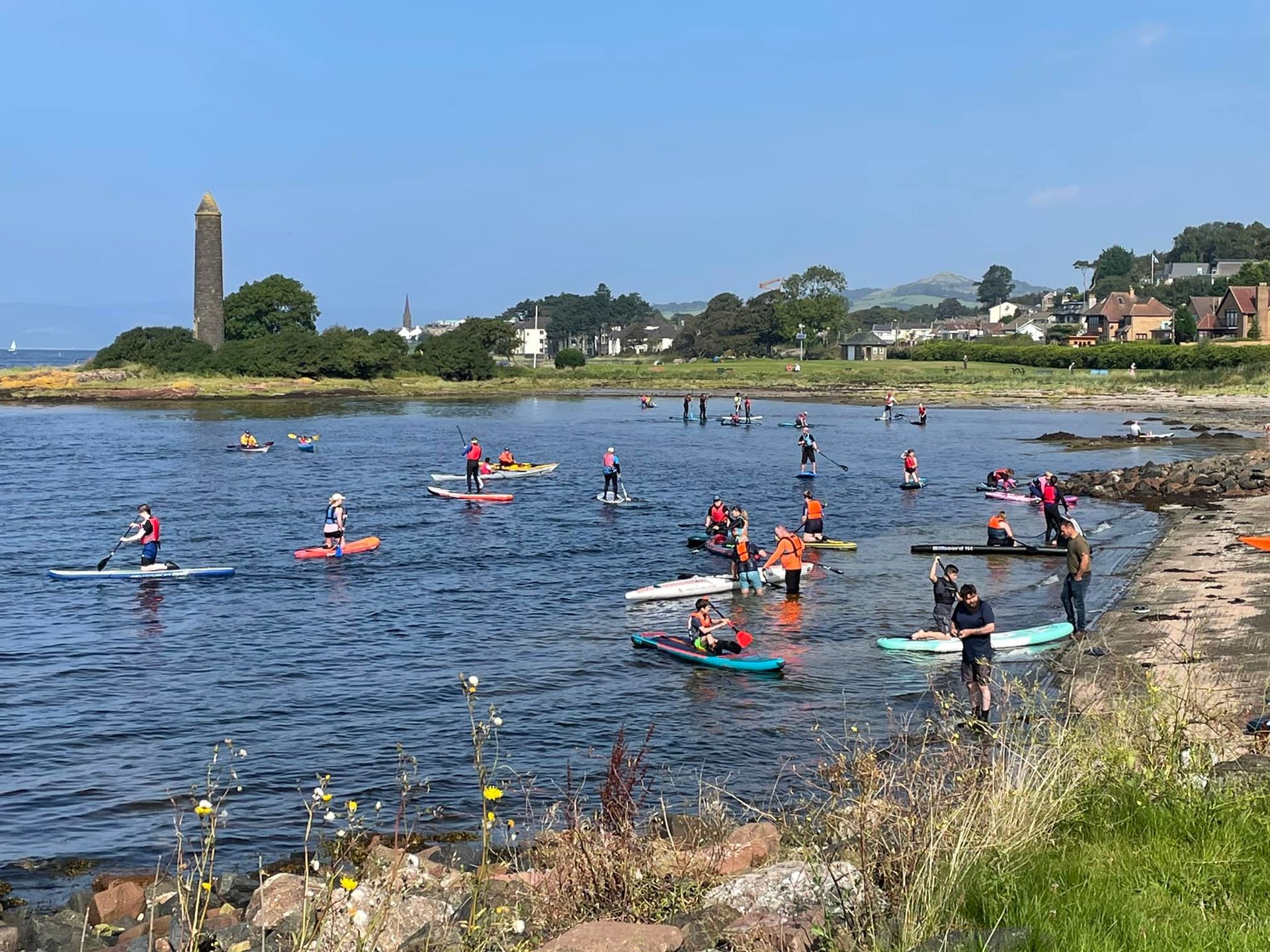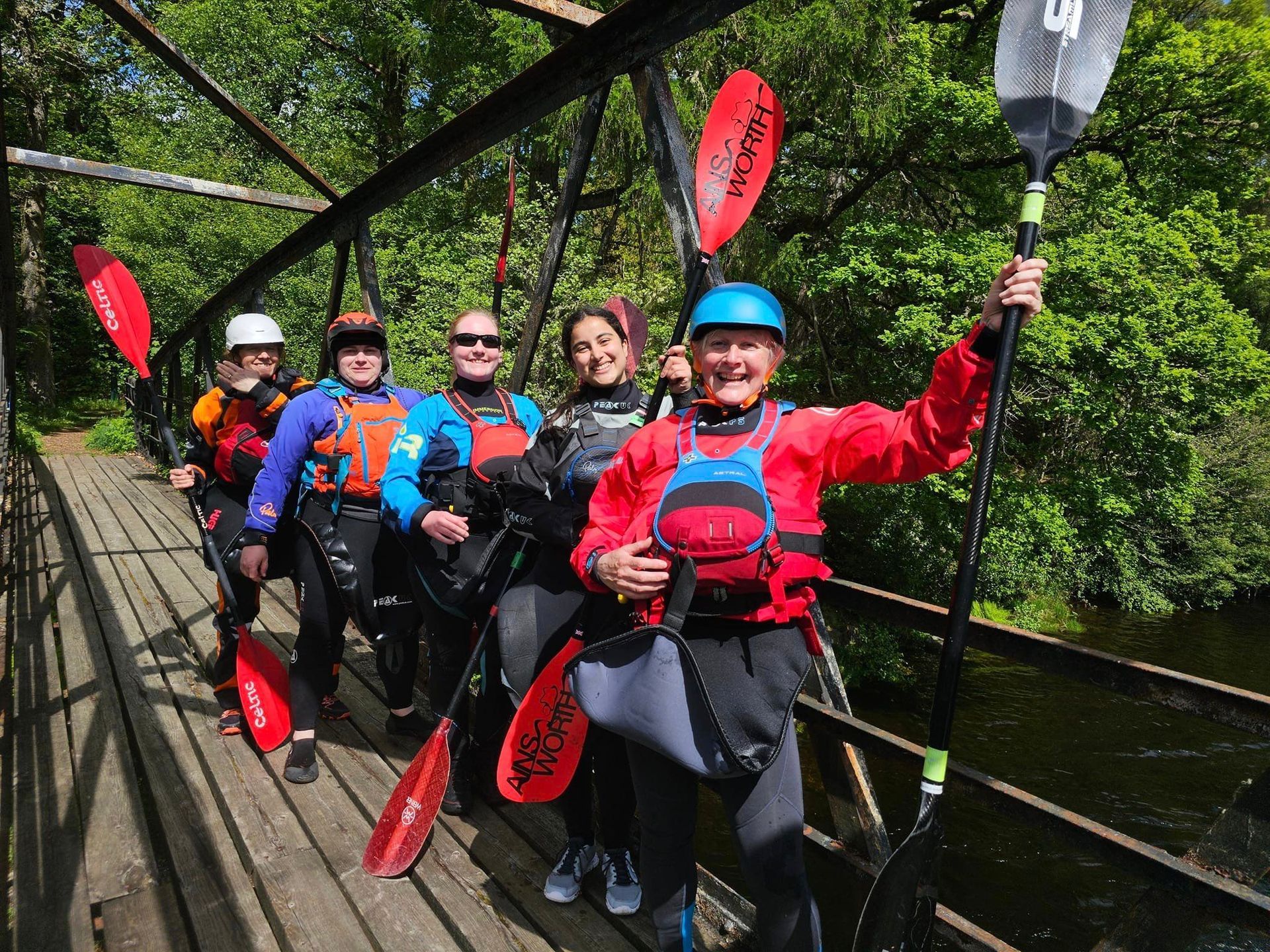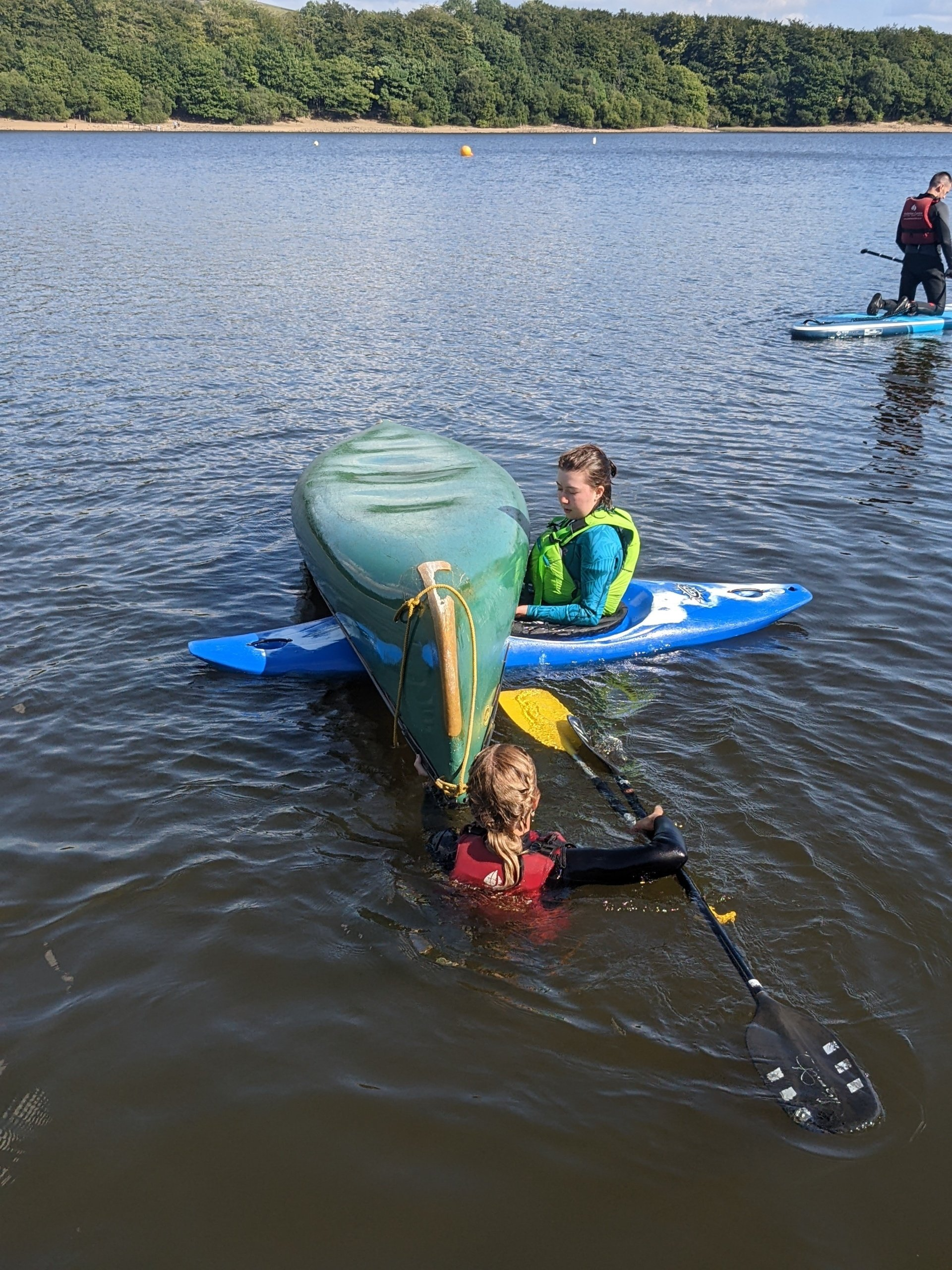Me, You, Us and Them - Why Women ‘Only’? Part 2: Female Specific Events
Me, You, Us and Them - Why Women ‘Only’? Part 2: Female Specific Events
Last year I wrote the first of these articles with a focus on the benefits of female specific activities, focusing on female specific Facebook communities as we launched the “Scottish Women's Paddling Community” Facebook group. If you missed that article you can find it here. In this follow up I am going to explore “Women Specific Events”, face-to-face events that are run for female paddlers and look at the role these events play in supporting female participation.
Women’s paddlesport courses have been taking place for as long as I can remember, I was often asked to work on these courses as a white water kayak coach back in the 1990’s and I am sure they had been running long before my time!
So why are these types of event important? Research suggests that women often feel and behave differently in an all-female environment and that the opportunity to take part in such events can, for some, have a real positive impact on their participation and how they feel about themselves (particularly when the norm is for females to be a minority). This is not a criticism of the way things are, women generally enjoy being part of the open and vibrant paddling communities and will seek out like-minded people (male and female) as paddling buddies. The role that other women play within this network varies between individuals; but for some, there are just not enough other women to share their experiences with, or role models to inspire them.
Taking part in female specific events can have a real positive impact on attendees longer term participation and how they feel about themselves as paddlers.
The impact of such events is extremely wide-ranging and hard to measure. Complex psychological, sociological, physiological factors, overlap and interplay in the female paddlers psyche. In the most simple terms, female specific events are popular and well attended. Paddlers who attend them, go on to attend more. Organisers who run them, report that they are successful and go on to run more!
“The woman’s sea kayaking (WSK) festival was a major boost to my confidence and paddling ability. I attended the Scottish WSK Festival and the following year drove the 600miles south for the Devon festival as I gained so much from the Scottish event. I feel privileged to have been a participant at both events, during which I have had the opportunity to have been guided by the best female coaches. A massive thank you to all the coaches, organisers and other participants!!! These events are awesome and I very much hope more female paddlers will be able to experience the level of camaraderie these events bring!!!!”
Isn’t this popularity/demand enough? Well maybe, but despite their popularity and positive impact, female ‘only’ events still evoke negative emotional responses for some, both males and females. For some it is the notion of ‘fairness’, what about the men, shouldn’t we run ‘men only courses’? If we want equality, things have to be ‘fair’, right? The same for everyone? Except, the ‘same’ doesn’t always equate to ‘fair’. Supporting the principles of equality, diversity and inclusion it is important to recognise that in some cases we need to take positive action, provide additional support or create specific opportunities for under-represented groups. Currently females represent about 20-30% of the paddling community – to provide genuinely equal opportunities to female paddlers we need to go out of our way to create tailored opportunities that empower, support and/or inspire them to participate. This shouldn’t be seen as ‘unfair’ on men because there are plenty of opportunities for them, lots of other men participating acting as role models, inspiration and companions. This is not about treating men and women the same – but as their needs require.
The other negative response that can arise when we think about female ‘only’ events is in respect of segregation or separation. A sense that if we create female only spaces, we are somehow sending a message out that women don’t/can’t fit into the wider paddlesport community - but this is absolutely not the intent. Women do not want to be separate, they want to be integrated, they want to get along in the wider paddling community. It’s just that sometimes, some find women’s courses provide something very positive/different for them that motivates them, that inspires and/or supports them in a unique way. There is a space for women’s courses to easily co-exist within our wider landscape, especially if we can collectively recognise and accept their value.
For me, the single most important factor is that female specific events make a valuable and positive difference to some women. They provide choice, something different to complement the norm, providing unique experiences and opportunities that are not readily available to many female paddlers. They are not for everyone. Many female paddlers are happy and thrive in their regular paddling networks and have plenty of opportunities that suit them, some of these will choose to engage in women’s courses, others won’t. My language here is important… you don’t have to find mixed gender paddling environments to be ‘difficult’ or ‘unpleasant’ to want to go on women’s courses, you can enjoy both.
If women’s events make a difference to some then that is an excellent reason to support them. Especially those who otherwise might not keep paddling, might not progress their skills in more advanced conditions, might not progress their coaching/leading qualifications, or might not put themselves forwards into positions of influence.
The first Scottish Women's Paddling Symposium was held 12-years ago, in 2009, and has been run as a regular event ever since. Here is a reflection on the impact that attending has had on one participant:
“Attending the Scottish Women's Paddling Symposium changed absolutely everything for me, and I’m not exaggerating”.
“Attending the Scottish Women's Paddling Symposium (SWPS) changed absolutely everything for me, and I’m not exaggerating. Until I went to SWPS, I paddled solely with guys who were considerably better than me, and every trip felt like a job interview – if I screwed up, they wouldn’t invite me out the next time, and it’s hard to improve under those circumstances.
Anyway, my first SWPS was like one blistering hot Eureka moment. I’d been worried it was going to be… well, I don’t know, pick your most dreaded women-only event stereotype and go with that, but it wasn’t. It was the first time I had had total pure enjoyment of paddling, with none of the stresses I’d assumed were just part and parcel of the sport. Subsequent years have just got better and better, and each year I’ve pushed myself to paddle outside my comfort zone – and they’ve been FUN. I’ve watched the coaches take on challenges not only without flinching but with actual gusto, which I was in complete awe of; but then 365 days later at the next SWPS, I was doing exactly the same thing. So much of my paddling growth and confidence is a direct result of SWPS and the attitude and ability of the coaches and the other girls. It’s such a special thing. Best of all, though, I’ve made a solid group of female paddling friends who I meet up with on a regular basis.
These days, on any given (non-lockdown) week, I paddle with lots of different groups. This is regularly with all male groups, and they’re great – they’re my buddies. But I’m not sure I would still be paddling at all had it not been for the women I’ve met and learned from at SWPS. I wholly believe that too many women get put off paddling too soon because they think they’re not strong enough, they’re not brave enough, they’re not naturals, they’re just kidding themselves, they don’t want to make a fool of themselves in front of guys. Without other female peers and role models, you have to shear off your self-consciousness and that’s just too hard for a lot of women to do unless you’re dog-on-bone determined. Lots of women start paddling, in my experience beginners courses are often 50/50 male female, we just need to keep them at it”.
If every women’s event had that level of impact on just one attendee, it would be well worth it in my view…although I suspect the reach goes much further than that. In my experience there are lots of positive stories, women describing women’s events as being fulfilling, collaborative and supportive, giving them the space and freedom to be the paddler they want to be, to try new things, and to push themselves. And, that by occasionally being in an all-female paddling environment they thrive more when they return to their normal mixed gender paddling groups. Women’s events seem particularly important to support women when trying something new or when they want to push themselves and/or learn, this is especially true when the other options involve joining courses with people they don’t know. Repeatedly there is a call out for introductory, intermediate and advanced women’s courses to support progression as well as helping people get started.
As I wrote in the previous article “Being part of an under-represented group, and taking part in activities that challenge many gender norms can make it difficult to connect to the ‘sport’, to the ‘role’ you are in, or to the ‘people you encounter’ as the image or values can feel significantly different to your own personal image/values. Spending time with other female paddlers can help reinforce the message to women that they do fit in… can belong to the wider community of paddlers, and can thrive in our sport.
“If our brain-based guidance system comes across a situation where “people like us” aren’t generally found it can cause us to remove ourselves. To engage may feel uncomfortable or unnatural as “the rules” are powerful dictators of social behaviour”. (Kate O’Brien writing about unconscious gender bias. Horizons, 2019).
Recent research undertaken by Northumberland University explored both the perceptions and experiences of women participants in women’s and mixed-gender skill courses at Glenmore Lodge. The research looked to investigate the gendered experiences of women on single and mixed-gender adventure training courses and the impact of these courses on their aspirations. Within their conclusions they highlighted women’s motivations for selecting women-specific spaces as being more complex and layered, far extending a simple address of a lack of confidence within mixed-gender environments. They found that women-specific spaces offer important opportunities with many participants reporting that these spaces are especially conducive to learning.
So What?
This year the SCA are seeking to promote and support female specific events being run by others. In 2020 many of the larger events like the Scottish Women's Paddling Symposium were cancelled due to Covid-19, and the uncertainty heading into this year means it may be some considerable time before they start to reappear in our calendars.
If you are a provider of paddlesport activity, could you organise a women's course and/or event this year?
Could you put on a woman's course in your club and/or centre this year? This is a call out to everyone, not just the women out there. Please support and encourage, put the topic on the agenda and help make these events happen. We are currently developing a toolkit to support organisers to run women’s courses/events, and we’ll be in touch with our providers, partners, clubs etc. soon asking for dates so that we can publicise them on a centralised calendar on the SCA website.
If you have any questions or comments, or if you wish to discuss plans you might have for running an event please do get in touch. lara.cooper@canoescotland.org
Lara Cooper
Lara grew up paddling, started as a kid racing in Canoe Slalom, then got into White Water kayaking (paddling, exploring and coaching), and now loves her Sea Kayaking. Her professional career has been firmly set in paddlesport as Coach Educator, Qualification Developer and Trainer supporting the SCA and British Canoeing. Lara is part of the SCA Female Equality Group, and is particularly passionate about supporting female paddlers, coaches and providers to thrive in our sport, whilst also championing a 50:50 representation.
A Note about Language
“Women Only”, “Women Specific”, or just “Women’s” or “Female”? Subtly different, but important all the same. Language is complicated, interpreted by different people in different ways. This can lead to a disconnect between the underlying intention and actual effect, particularly for an emotive subject. In this article I have deliberately chosen how I have used these words, using them where I think each best describes what I’m hoping to convey. In doing so I hope to offer a language we can all use.
At the Glenmore Lodge 2016 Women in Adventure Sports Conference the audience expressed a real preference for ‘Women Specific’ rather than ‘Women Only’. “Women Specific” highlights/suggests that the event is tailored towards the specific needs of females - a good thing! “Women Only” implies that the most important factor is that it is single gender, this feels more divisive and less positive. I use the word in the title of this article to deliberately tweak on those emotions and hopefully entice more people to read on.
It is also worth mentioning that we should only mention gender when it really matters. Before you mention someone’s sex or gender, ask yourself if is necessary to do so.
Connect on Facebook
Scottish Women’s Paddling Community
A private Facebook group for female paddlers (and those who want to become paddlers), to share ideas, make new friends, meet up, swap advice and stories and discuss paddling in general. A supportive community to support, encourage and celebrate. 700+ members!
Women's Paddling Community
This group was created by British Canoeing about 5 years ago, now with 2,700+ members. It serves the same purpose as the Scottish Women’s Paddling Community (but with a broader reach and wider geographical spread).
Women in Paddlesports Coaching, Guiding & Leading
A group for female Paddlesports coaches, guides and leaders to discuss, introduce, inspire, question, suggest…. 340+ members.
To all women - please join these groups and connect with other female paddlers.
To everyone - please share these groups to female paddlers in your networks.

